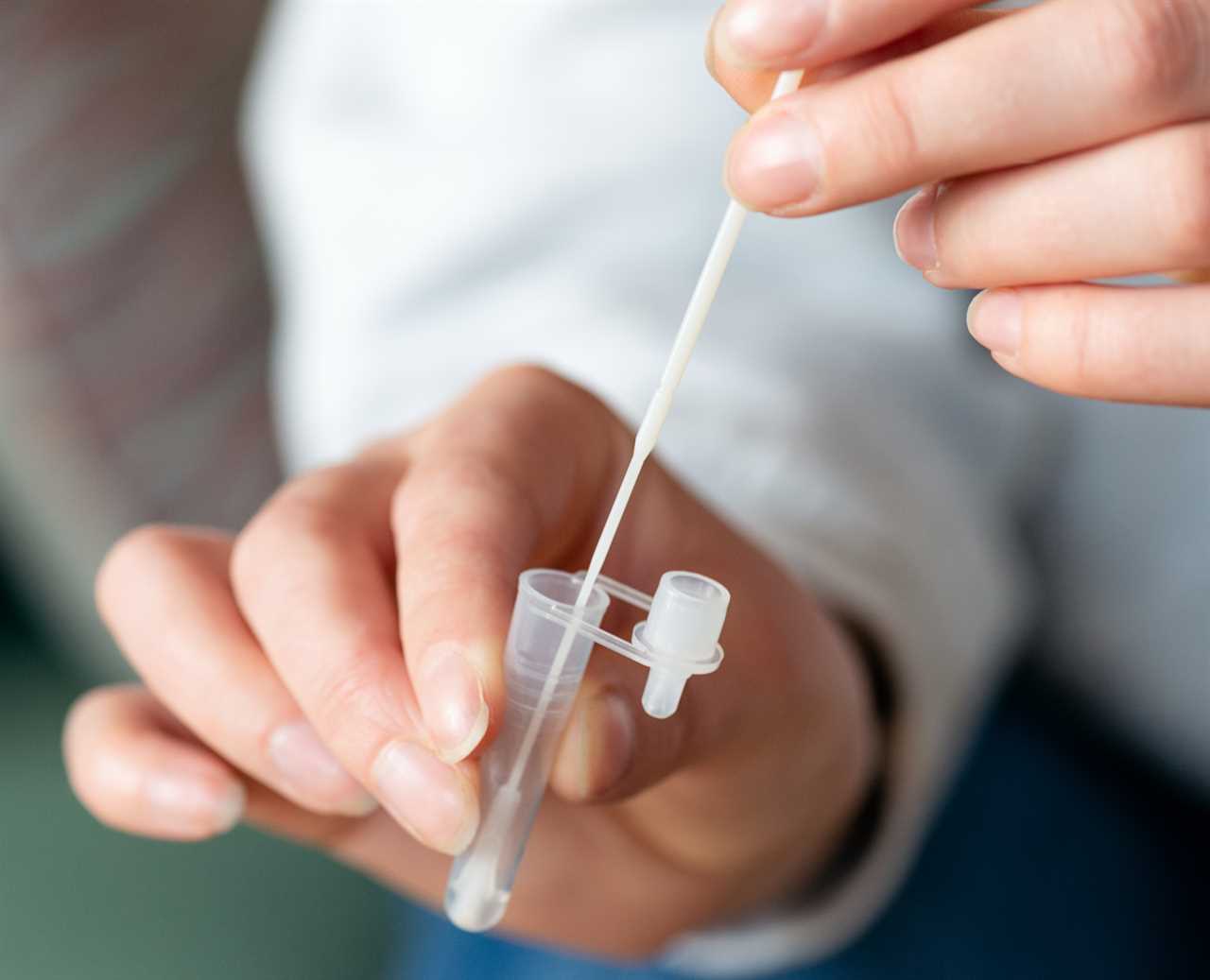A MAJOR change in Covid testing coming into force this week makes it even more crucial you know the symptoms of Omicron.
Covid tests will no longer be free of charge under the Government move to “living with Covid”.

Boris Johnson revealed that as of April 1, universal free testing in England will be no longer be offered to the public.
This includes 15-minute at-home lateral flow tests and PCRs, it’s understood.
Only a small amount of free tests will be available to the most vulnerable people, to be decided by the UK Health and Security Agency in due course.
Anyone who wishes to get a set of rapid home tests, which can help identify people who don’t have symptoms, will have to pay for them as of the spring.
The move is part of the PM’s “living with Covid plan“, which also includes axing legal self-isolation.
People in England are being told to exercise “personal responsibility” when it comes to limiting spread of the virus.
It means that if you get Covid symptoms, it’s up to you to prevent infecting colleagues, friends and family.
The PM said: “We will encourage people with Covid-19 symptoms to enact personal responsibility, in the same way we would with flu.
“We don’t need laws to compel people to be considerate to others – we can rely on that sense of responsibility for others.
“Let us learn to live with this virus and continue protecting yourself and others, without restricting our freedoms.”
The Health Secretary Said Javid suggested you should stay off work if you have symptoms that resemble the virus.
He told Times Radio: “Certainly one of those lessons might be if you’re not feeling well, whether you think it’s Covid or not, it’s always best to stay away from others – at least for a short time – to make sure you’re not infecting others.”
As it stands, you can still order lateral flow tests for free from the Government website or by calling 119.
However, how often you can order a pack has already been scaled back today.
The portal used to allow you to order a new box of seven tests once every 24 hours, which has now increased to every three days.
Symptoms of Covid
The NHS continues to only list three symptoms as classic to Covid; a continuous cough, loss of taste and/or smell and a temperature.
This official list hasn’t been updated since the population got vaccinated, or since new variants have emerged.
However, Covid disease can present in a number of ways outside of these three symptoms.
This has been highlighted by the ZOE COVID Symptom Study, which has been continuously collecting data on the outbreak with the help of millions of app users.
Twenty symptoms are regularly logged by unwell Brits when they catch Covid.
ZOE researchers, led by King’s College London, say these are:
- Runny nose (74 per cent)
- Headache (67 per cent)
- Sore throat (64 per cent)
- Fatigue (64 per cent)
- Sneezing (60 per cent)
- Persistent cough (42 per cent)
- Hoarse voice (38 per cent)
- Chills or shivers (30 per cent)
- Unusual joint pains (30 per cent)
- Fever (27 per cent)
- Dizzy (27 per cent)
- Brain fog (24 per cent)
- Eye soreness (23 per cent)
- Unusual muscle pains (21 per cent)
- Altered smell (20 per cent)
- Lower back pain (18 per cent)
- Swollen glands (18 per cent)
- Skipped meals (16 per cent)
- Chest pain (16 per cent)
A third of people (33 per cent) also reported “other” symptoms, which could include rarer symptoms such as night sweats, vomiting or diarrhoea.
This covers both unvaccinated and vaccinated individuals, but the study sample will largely reflect the population as a whole. The large majority of Brits are double-vaccinated, while around two-thirds are boosted.
The Office for National Statistics (ONS), the UK’s other large Covid-tracking study, states that the most commonly reported symptoms of Covid have been:
- Cough
- Fatigue
- Headache
There can be a number of potential causes of each of these symptoms individually.
However, put together, a combination of two or more symptoms may be a sign that you have Covid.
Some say feeling generally “under the weather” and extremely fatigued is the first sign that you may be infected.
What to do if you have symptoms
Without an abundance of free lateral flow tests, you could find yourself in a situation whereby you believe you have Covid, with no way of finding out.
The “living with Covid” document, published last night, said people can reduce the risk of spreading Covid by “trying to stay at home if you are unwell”.
Since the start of the pandemic, the law has been to self-isolate if you have signs of the virus until you get a Covid test result.
Now, there will no longer be a legal requirement to self-isolate until test confirmation.
Even with a positive test result, there are no mandatory rules on staying at home.
However, the official public health advice will remain that people testing positive for the virus should stay at home for five days. This includes both adults and children.
The Government will also no longer ask vaccinated contacts, and those under 18, to test for seven days, and will remove the legal requirement for contacts who are not vaccinated to self-isolate.
No10 said: “We’d expect anyone with an infectious disease to take steps not to spread that disease further – a colleague at work with flu, for example.”






